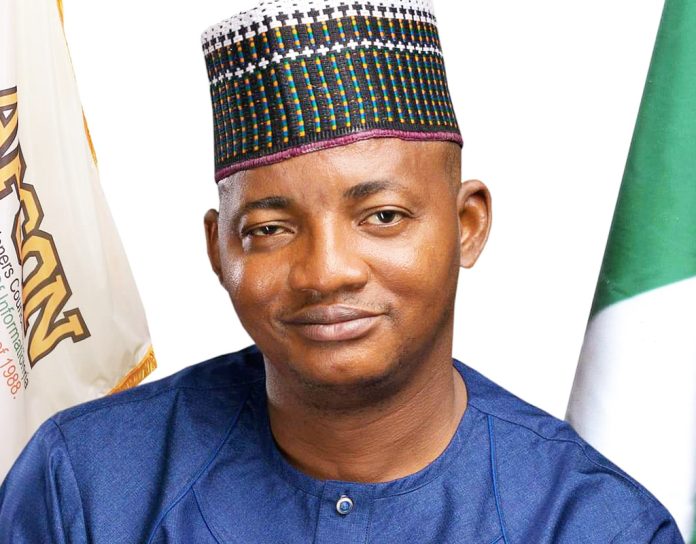The Advertising Regulatory Council of Nigeria has banned the production of indigenous advertisements in foreign countries, adding that such would reduce unemployment and improve the national economy.
This was contained in a press statement signed by ARCON Director-General, Olalekan Fadolapo, on Monday.
ARCON noted that advertisers must stop the capital flight and development of other countries’ economies by going out of the country to produce adverts meant for the Nigerian market, thereby killing the advertising industry.
The statement partly read, “All commercials to be exposed to Nigerians should be produced in Nigeria. Create jobs for our youths, help grow and develop the support service sector of the industry and circulate the money within the Nigerian advertising ecosystem.”
The statement also reiterated the agency’s ban on the use of foreigners to voice or model adverts exposed to the Nigerian market.
It stated, “Nigerians should be considered as primary in advertisement targeted at the Nigerian market. The use of foreign models and voices is banned except where it is inevitable. If you are selling your product to Nigerians, use Nigerians in your communication elements.”
ARCON also lamented the violation of the industry’s credit policy by some of the agencies, noting that their actions have led to industry debt and exploitation of media owners.
“Globally, the payment threshold is a policy in the advertising industry. Advertisers Association of Nigeria members have been offering Nigerian businesses a 120-day payment circle, thereby impoverishing the Nigerian advertising industry. These same advertisers prepay foreign media houses operating in Nigeria for media services,” it said.
When contacted by our correspondent, Fadolapo explained that there was no going back on advertising industry reform after the announcement of his reappointment as the agency’s DG.
He said, “It takes a village to produce an advert. Sometimes, the cost of producing an advert can be as much as N500 million depending on the magnitude of the advert. Now, these advertisers prefer to take this huge amount of money to South Africa, Kenya, or any other country, thus, enriching that country’s economy.
“However, what they would bring back to Nigeria is only a flash drive to expose the adverts through our media outlets, either television or whatever channel. What ARCON is saying is simple – the money used in producing these adverts abroad should be brought to Nigeria because they are making profits from their products in Nigeria and they should also be able to employ the service of our own sound engineers, production managers and every other personnel that’s needed for any advert.”
Fadolapo stated that producing these adverts in Nigeria would serve as a means to tackle unemployment and also enrich the country’s economic strength because huge sums of money would flow.
Speaking on voiceovers and models, he added that Nigerians have the capacity to voice any type of content that would be exposed to the Nigerian market.
He querried, “Are these advertisers telling me that out of over 200 million Nigerians, they cannot get models here to lead roles in their adverts? Are they telling us that out of our population, there’s no one capable of voicing adverts?”
“Nigeria is a huge economy and we have the potential of even becoming bigger by leveraging on the opportunity that the industry has, but advertisers want to continue taking advantage of the country, impoverishing us without contributing any quota to our economy rather than make profits.
“Different campaigns of calumny through some media platforms have been going on since my reappointment by advertisers but that wouldn’t stop us from doing what is right and standing by it. We have to get it right and ensure that the industry is adequately reformed,” he stated.
Fadolapo noted that the Minister of Information and National Orientation, Mohammed Idris, has approved the full implementation of the Advertising Industry Reform.
Share your story or advertise with us: Whatsapp: +2347068606071 Email: info@newspotng.com















